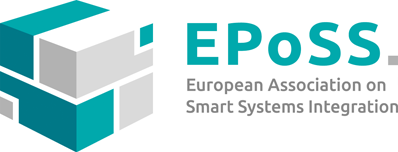The European Technology Platform on Nanomedicine (ETPN) and the NANOMED2020 project announced the publication of a White Paper on Contribution of Nanomedicine to Horizon 2020, the next European Framework Programme for Research and Innovation till 2020. This strategic document provides a set of key recommendations for the European Commission and the EU Member States to create a favourable ecosystem for the successful deployment of Nanomedicine in Europe. It lays thereby the groundwork to manage the efficient translation of nanotechnology from a Key Enabling Technology (KET) into new and innovative medical products.
Nanomedicine, also defined as the use of nanotechnologies in medicine, supports a strong research and emerging industrial healthcare sector in Europe. Based on excellent academic research and innovative SMEs, nanomedicine has the potential to answer today’s societal challenges such as the ageing population. ETPN’s White Paper will actively contribute to shaping the three pillars of Horizon 2020 – Excellence in Science, Industrial Leadership and Societal Challenges.
Based on an in-depth analysis of the main bottlenecks in the translation of nanomedicine to the market, i.e. the inefficient selection process of translatable projects and the lack of technical infrastructures, such as pharmacology and toxicology facilities, the White Paper strives for the creation of an strong SME based supply chain for innovative therapeutics and diagnostics as a profitable industrial sector. This will support innovation and keep production and high tech jobs in Europe for the benefit of both European economy and European patients. The pivotal proposition of the White Paper is the establishment of a Nanomedicine Translation Hub designed as an umbrella for a set of complementary actions and initiatives such as:
- a dedicated Nanomedicine Translation Advisory Board (TAB) with experienced industrial experts to select, guide and push forward the best translatable concepts,
- a European Nano-Characterisation Laboratory (EU-NCL) for physical, chemical and biological characterisation of nanomaterials intended for medical use,
- GMP manufacturing pilot lines for clinical batches to assist both academia and SMEs to develop nanomedical materials for validation in clinical trials, before transfer to dedicated manufacturing organisations,
- a dedicated NanoMed SME instrument aiming at funding discovery projects and innovative SMEs in order to keep excellence in nanomedicine research and development.
Nano-concepts for a macro-impact on EU economy
The implementation of these recommendations in Horizon 2020 represents a unique opportunity for Europe to foster innovation in healthcare and to push for the emergence of a leading nanomedicine sector. With an estimated total budget of 800 Mio. €, it will therefore actively contribute to the re-localisation of pharmaceutical research and to the re-industrialisation of Europe, being thereby a significant factor for growth and for job creation. With nearly 250 “nano”-products used or tested in humans worldwide, representing about 10% of pharma sales and a $130.9 billion market by 2016, nanomedicine is meant to have a real impact on the European economy.
The European Commission has the potential to play a major role in this process through its framework programme Horizon 2020. In coordination with Member States and by funding the research of cutting-edge technologies for the future of Medicine, by de-risking innovation in SMEs and by facilitating the dialogue with regulatory authorities and large industrial partners, the European Commission can actively support the nanomedical sector for the benefit of the patients.
The White Paper “Contribution of Nanomedicine to Horizon 2020“ is available for download on the ETP Nanomedicine website underShare on
